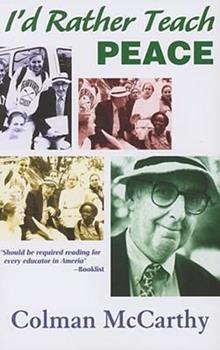Jorge Mariscal -
When Boston College student Joe Previtera decided to protest the war in Iraq, he headed to the one place that keeps the war machine well stocked with fuel-his local recruiting office. In a clever display of street theater, Previtera put on a black hood and cape, stood on a cardboard box, and attached stereo wires to his hands. The message was clear enough. The recruiters say money for college but the reality of war says Abu Ghraib.
No one signed up that day but Previtera was arrested by Boston police and subsequently charged with two felonies having to do with "making false bomb threats" (charges were later dropped). In his act of grass roots pedagogy, Previtera joined a growing number of activists across the country that are focusing their attention on military recruiting as one of the most important fronts in the struggle against militarism and war. While many people continue to generate fearful predictions about an impending draft, others have realized that the so-called volunteer army is already a form of conscription for those young people with limited economic and educational opportunities.
At the University of Wisconsin in Madison, a group of over fifty people staged an act of civil disobedience outside a recruiting office near campus. Four students and a university employee entered the office and delivered their press release, refusing to leave until the recruiting station was turned into a financial aid office. The four protestors were arrested and charged with trespassing.
In their press release, the Madison group called recruitment "a predatory practice" and argued: "The war in Iraq has seen hundreds of thousands of soldiers sent to fight in a needless conflict. A large proportion of these soldiers were recruited from the most disempowered segments of American society-the poor, people of color, high school students. Recruitment often takes the place of financial aid or a decent job, and it is grossly unfair."
For a two week period following the protest in late November, 2004, a local Madison television station conducted a survey on its website. To the question "Are Military Recruiting Methods Unfair or ‘Predatory,’" over nine hundred respondents voted 58% NO, 32% YES, and 10% DON’T KNOW. Evidently counter-recruitment activists still have much work to do. Organizers of the original protest promised they would revisit the recruiting station in the near future.
In Vermont, activists converged on a local National Guard recruitment office. Among the fifty states, Vermont has one of the highest percentages of its population in the Guard and many have been deployed to Iraq and Kuwait. Organizer Leo Schiff called military recruiting "deceitful and deadly." In a local newspaper in Montpelier, one letter writer made the interesting observation that the U.S. Constitution may actually prohibit the use of Guard troops in foreign conflicts since Article I, Section 8 grants Congress the power "to provide for calling forth the Militia to execute the Laws of the Union, suppress Insurrections and repel Invasions" but not the power to deploy the Guard overseas.
One of the more dramatic protests targeting a recruitment station took place in late November of 2004 in Philadelphia. Increasingly frustrated by the lack of response from the Office of Housing and Urban Development to the needs of local homeless families, members of the Kensington Welfare Rights Union (KWRU) moved out of the Bushville Tent City they had established and staged a sit-in at the city’s main Army recruiting station. Carrying signs that read, "Bring the Money Home" and "Billions for War, Still Nothing for the Poor," they briefly took over the office and issued a list of demands including affordable housing and domestic violence shelters. Several homeless families stated that they had relatives fighting in Iraq. The sit-in ended peacefully when fire and police officials arrived, and the homeless families returned to their encampment. "Operation Bring the Money Home" will continue into the new year (more information available at http://www.kwru.org/updates/2004/11-30-04.htm).
On January 20, 2005, the day of the presidential inauguration, hundreds of students walked out of local Seattle schools to protest the war in Iraq. At Seattle Central Community College, an ethnically diverse group of working class students surrounded an Army recruiters’ table and began to tear up enlistment literature, eventually forcing the recruiters to leave campus (see photo at http://www.antiwar.com/blog/index.php?id=P1677). Counter-recruitment actions at community colleges may be the wave of the future given the Pentagon’s increased interest in recruiting there. According to a study done by the Rand Corporation: "The greatest enlistment potential exists among two-year [college] students and two-year dropouts" ("The Enlistment Potential of College Students" in Asch and Kilburn, Recruiting Youth in the College Market, 2003).
In related actions, students and faculty at the University of Puerto Rico (Mayagüez and Río Piedras campuses) have sustained a three yearlong struggle to demilitarize their institutions of higher learning. Born out of the successful struggle by the community of Vieques to remove the U.S. Navy bombing range, the Frente Universitario por la Desmilitarización y la Educación (FUDE) or the University Front for Demilitarization and Education has led the fight to oust ROTC programs. They have used sit-ins and hunger strikes to block the construction of an Air Force ROTC building and temporarily took over an Army ROTC office where they painted murals with counter-recruitment themes on several walls.
One of the faculty leaders is mathematics professor Hector Rosario who, as an untenured faculty member, risked his career by participating in a fast at the end of last summer. Because of his activism he was suspended from teaching and will not receive any salary until university officials consider his case this March.
With at least 23 Puerto Ricans from the island killed in Iraq so far and thousands more in the armed forces, the issues of recruitment and war are controversial. But Rosario and his students will not be deterred. As he wrote in a press release last February: "Students claim these buildings that were meant for education of a country not for the military training of its citizens that will eventually participate in the massacre of childrenNot in our name. Not with our resources. Not anymore."
JORGE MARISCAL teaches Chicano Studies at the University of California, San Diego. Visit his blog at: http://jorgemariscal.blogspot.com/ He can be reached at: This email address is being protected from spambots. You need JavaScript enabled to view it.










